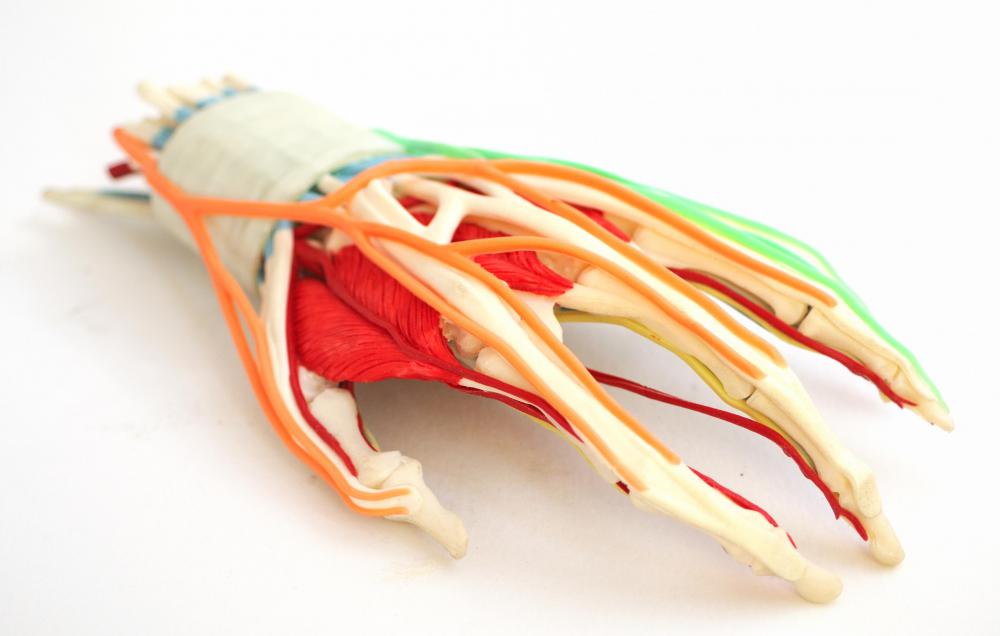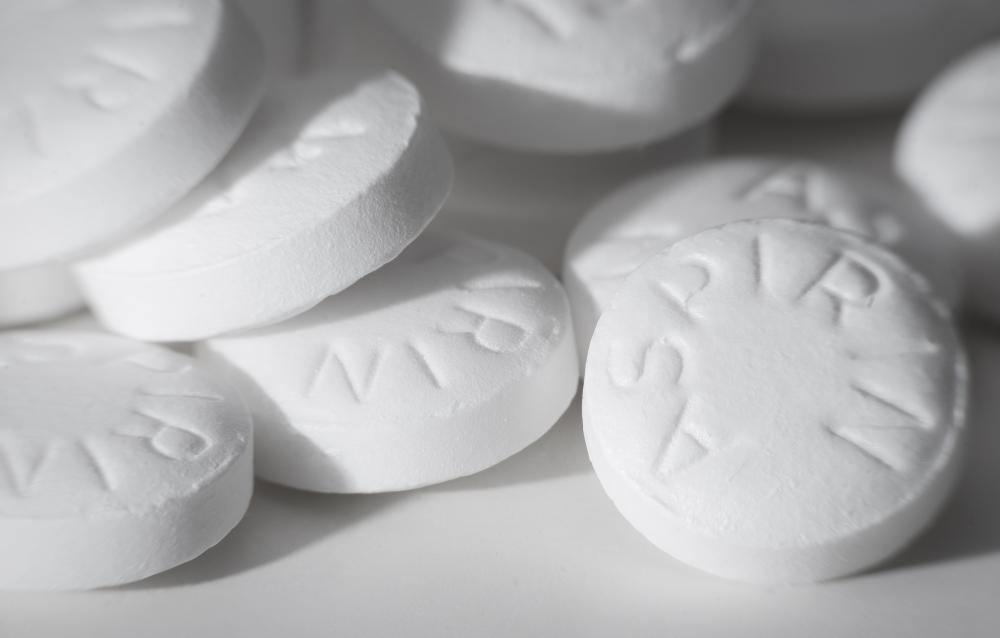At TheHealthBoard, we're committed to delivering accurate, trustworthy information. Our expert-authored content is rigorously fact-checked and sourced from credible authorities. Discover how we uphold the highest standards in providing you with reliable knowledge.
What is Gout of the Hand?
Gout of the hand is an acute, painful condition in which one or more joints in the hand or fingers become inflamed, swollen, red, and stiff. People can experience a single episode of gout that lasts for several days or frequently recurring attacks. Joint inflammation is caused by abnormally high levels of uric acid in the bloodstream, which can be due to an overproduction in the body or consuming too much dietary uric acid. Most cases of gout in the hands can be treated with prescription anti-inflammatory medications.
Uric acid is a natural byproduct of cell metabolism. In normal amounts, most of the acid is filtered by the kidneys and excreted from the body through urine. Gout develops when uric acid levels are too high and hard crystals start to form in body joints. Most cases of gout affect the big toe, ankle, or knee joint, though gout of the hand is not uncommon. Men are more susceptible than women, and excessive drinking, obesity, diabetes, and high blood pressure can all raise a person's risk of developing gout.

An episode of gout usually comes on suddenly. Pain, redness, burning sensations, and swelling appear immediately. Finger or hand joints can be very tender to the touch and difficult to bend. Symptoms typically last for several days at a time, and pain is often the worst at nighttime. People who do not make lifestyle changes or seek medical care can experience recurring episodes and chronic joint tenderness.

It is important to visit a doctor whenever gout of the hand symptoms are persistent. The physician can evaluate symptoms and collect a blood sample to check for elevated uric acid levels. He or she may also use a needle to collect a small amount of fluid from an inflamed joint to look for uric acid crystals. Additional tests may be needed if the doctor suspects kidney complications.

After confirming the diagnosis, the doctor can explain treatment options. Some of the most important things a patient can do are to drink more water, limit or eliminate alcohol use, and make healthier food choices. Medications for gout of the hand include oral anti-inflammatory drugs, and corticosteroid injections. If the problem is overproduction of natural uric acid, a patient may need to take medications that slow production and help the kidneys filter acid more efficiently. Most people who follow their doctors' instructions are able to overcome symptoms within a few weeks.
AS FEATURED ON:
AS FEATURED ON:
















Discussion Comments
I've had gout for twelve years. Indomethicine works great. On a serious note, if nothing else works buy a bottle of crown royal and take about 8 shots per day for two days. Whiskey lowers your uric acid levels. Beer is no good for gout. -- Scott S.
I've had gout attacks in my feet and knees for years, but this is the first time in my hand. Indomethacin works for me almost immediately, but my current doctor won't prescribe it anymore because of my age.
I am fighting it right now. I've had it for over a month now. My doctor prescribed a 30 day round of Meloxicam. I've been taking it for 15 days and it helped at first, but doesn't seem to be working anymore.
I have had gout in both hands for three years. I have little or no pain. just a limited range of motion (from tophi). I started using baking soda for two weeks and noticed some improvement.
I had it last for three months. It's a horrible thing.
One way to check for gout is by applying pressure on the palm of the hand. If applying pressure causes a sharp pain, it's most likely gout.
@ankara-- It took mine about three weeks to heal completely but I was on both anti-inflammatory medication and a steroid, more specifically a corticosteroid.
You need to see your doctor and show him that things haven't improved. You will most likely be given a steroid.
I heard that sometimes signs of gout and arthritis can be confused so if you don't respond to treatments, that might be the cause.
I was told that I have a gout attack in my hand two weeks ago. I've been on anti-inflammatory medications for two weeks but my symptoms are still there. My hand is stiff, swollen and painful, I'm not able to use it at all.
Has anyone else experienced hand gout? How long did it take for yours to go away?
Post your comments